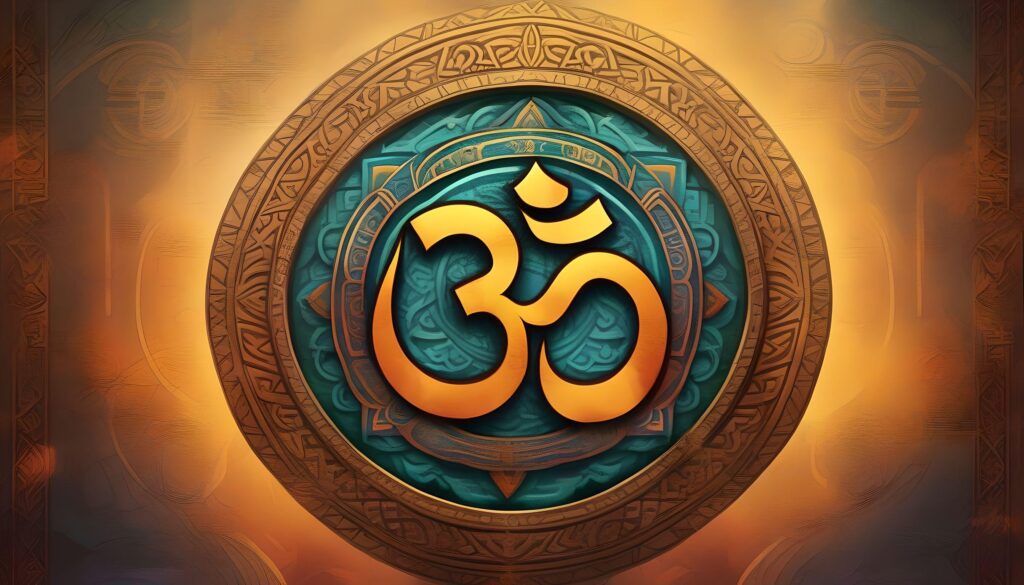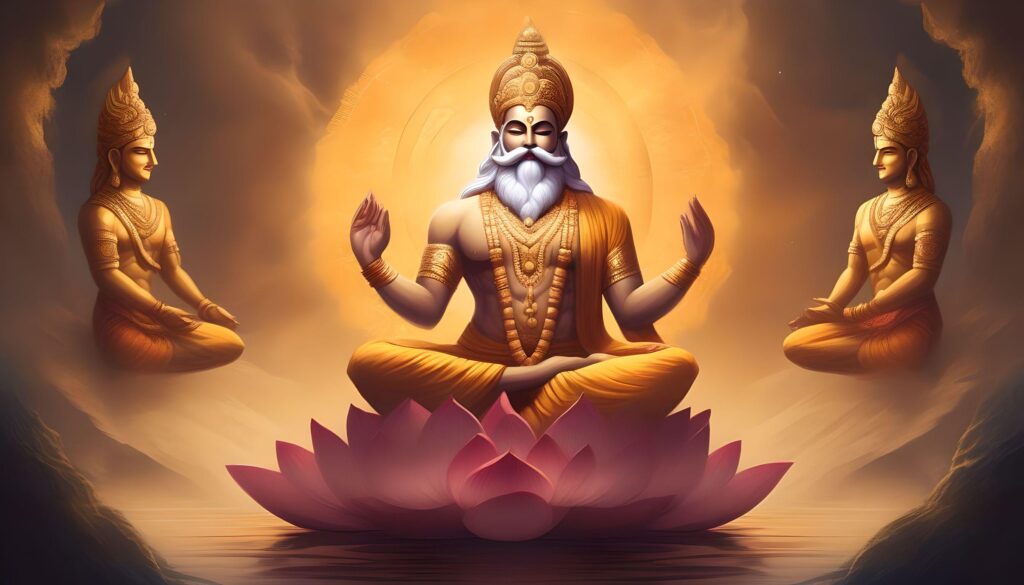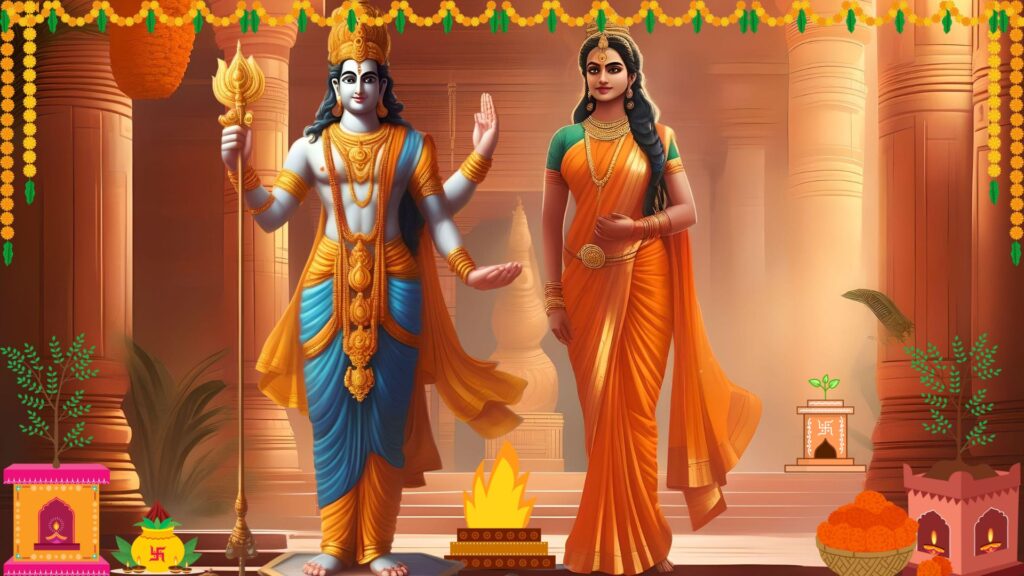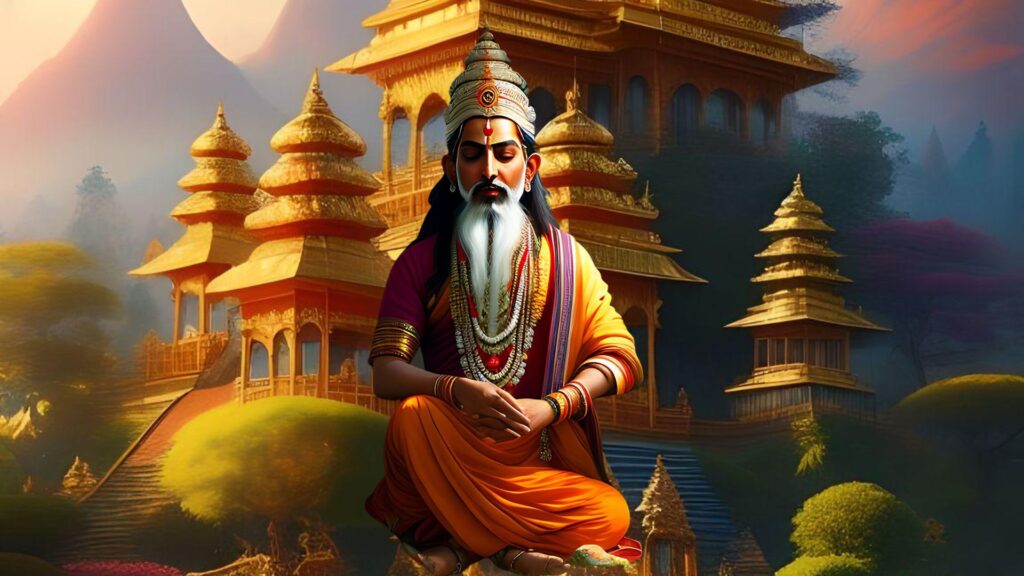Ramanujacharya: A Journey into the Life of a Great Hindu Theologian
Introduction
Ramanuja, also known as Ramanujacharya or Ilaiya Perumal, was a highly regarded figure in Hinduism. Ramanuja, who was born in Sriperumbudur, a village in southern India, in 1017, became one of the most influential philosophers in the history of Hindu philosophy. His intellectual contributions and teachings continue to influence the religious landscape of India to this day.
Early Life and Education
Ramanuja was born into a wealthy Brahmin family, with his mother being Kantimathi and his father being Kesava Samayaji. He exhibited a profound spiritual inclination and significant intellectual potential from a young age. He received his early education in Kanchipuram under the tutelage of his teacher, Yadavaprakasha, who adhered to Shankara’s monistic Vedanta philosophy.
Nevertheless, Ramanuja’s religious convictions were at odds with his teacher’s monistic teachings. Ramanuja was dissatisfied with Shankara’s philosophy’s impersonality and pursued a more devotional and intimate approach to spirituality. During this pursuit of a more profound comprehension, he experienced a transformative vision of the deity Vishnu and his consort Shri. Ramanuja’s devotion was reignited by this experience, which also established the foundation for his future pursuits.
Embracing Bhakti and the Worship of Vishnu
Ramanuja, motivated by his vision, became a temple priest at the Varadaraja temple in Kanchipuram. There, he began to disseminate his doctrine of devotion to the deity Vishnu. He underscored the importance of personal worship and the soul’s union with God as fundamental components of spiritual practice. Ramanuja’s teachings were consistent with the doctrines of the Upanishads, the speculative commentaries on the Vedas, and were based on the teachings of his predecessor, Yamuna.
Ramanuja initiated an extensive pilgrimage throughout India in his pursuit of spiritual knowledge. He circumambulated the country and disseminated his teachings from Rameswaram to Badrinath. This pilgrimage not only enhanced his comprehension of Hindu philosophy but also enabled him to establish connections with a variety of communities and disseminate his message of devotion to Vishnu.
The Philosophy of Qualified Monism
Vishishtadvaita, which translates to “qualified monism” in English, is the philosophical foundation of Ramanuja. Ramanuja’s Vishishtadvaita, in contrast to Shankara’s Advaita (absolute monism) and Madhvacharya’s Dvaita (dualism), posits that the material universe qualifies the ultimate identity between the finite souls and God. The pursuit of daily life is not in opposition to the life of the spirit, and the phenomenal world is true and provides genuine knowledge, according to Ramanuja.
The philosophy of Ramanuja establishes an analogy between the body and the soul, asserting that the orders of matter and soul constitute God’s “body,” modifying it without existing independently, just as the body modifies the soul but has no distinct existence from it. This viewpoint underscores that the objective of human spirits is to contemplate the qualities of God and serve Him. The teachings of Ramanuja emphasize the interconnectedness of all beings and the manifestation of God’s grandeur in the phenomenal world.
Ramanuja’s Intellectual Contributions
Ramanuja’s intellectual contributions to Hindu philosophy are significant. He authored three significant commentaries that established the groundwork for the Hindu practice of bhakti (devotional worship). Vedartha-samgraha summarizes the significance of the Vedas, the earliest scriptures of Hinduism. The Brahma-sutras, which present the main tenets of the Upanishads, are detailed elucidated in the Shri-bhashya. Finally, the Bhagavadgita-bhashya offers a commentary on the Bhagavadgita, a highly regarded Hindu scripture.
Ramanuja established a philosophical framework that unified devotion, knowledge, and action into a comprehensive spiritual path through these commentaries. His teachings underscored the significance of comprehending the scriptures and participating in devotional worship as a method of achieving liberation. Scholars and practitioners of Hinduism continue to study and revere Ramanuja’s commentaries.
Influence and Legacy
Ramanuja has had a profound impact on Hinduism as a religion. He unified popular religious practices with philosophical pursuits by integrating the practice of bhakti into his doctrine of salvation. His emphasis on the importance of religious worship as a means of salvation has had a lasting influence on the religious thought and practice of Hinduism.
Ramanuja’s teachings were disseminated throughout India, transcending his native Tamil Nadu. He established centers and temples to disseminate his doctrine, and his disciples, Shrivaishnavas, continue to maintain his teachings to this day. The ongoing debates and interpretations of Ramanuja’s philosophy are reflected in the division between the northern Vadakalai and southern Tenkalai subcastes among the Shrivaishnavas.
Conclusion
Ramanuja’s life and teachings serve as a testament to the intellectual pursuit of spiritual truth and the influence of devotion. He established a philosophy of qualified monism that is anchored in devotion to Vishnu, a philosophy that is a testament to his profound spiritual quest, after questioning the monistic teachings of Shankara. Ramanuja’s contributions to Hindu philosophy and his emphasis on the practice of bhakti continue to motivate and direct millions of individuals on their spiritual journeys.
The interconnectedness of all beings and the importance of devotion in the pursuit of spiritual liberation are profoundly understood as we investigate Ramanuja’s legacy. His teachings serve as a reminder that genuine grandeur is found in the service of humanity and the worship of God, irrespective of caste or creed.








